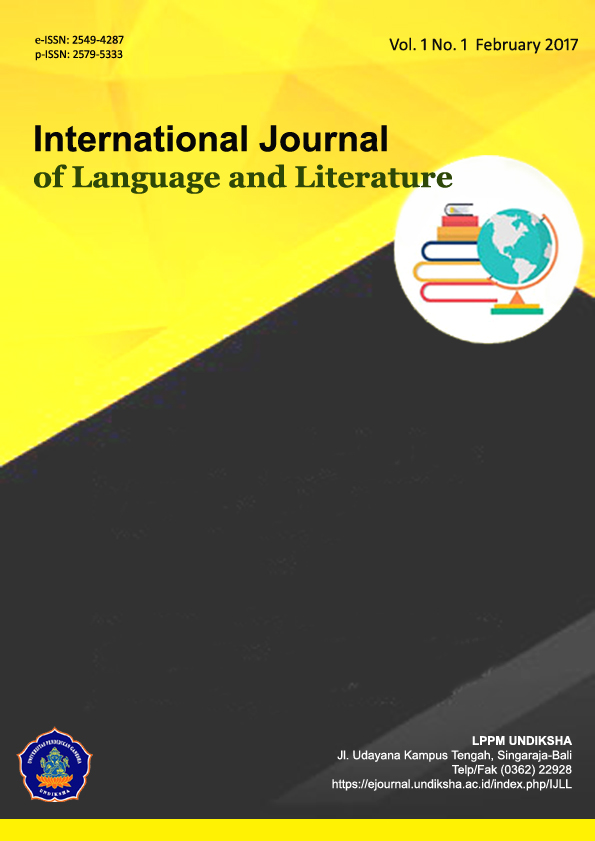A DESCRIPTIVE STUDY OF THE TEACHER’S TECHNIQUE ON CONTROLLING THE STUDENTS’ MISBEHAVIOR IN SMPN 1 SUKASADA
DOI:
https://doi.org/10.23887/ijll.v3i2.20838Keywords:
Digital native students, digital games, English skillAbstract
Students in this era were already being in touch a lot by technology. This is one of the reasons why students in this era were called as digital native students. The purpose of this research was to know the impact of using digital game to improve the digital native students’ English learning. Sample of this research were 25 elementary school students that chosen using lottery and they divided into 5 groups based on the digital local story game that they would play. Pre-test, post-test and interview were conducted to measure the improvement of students’ English learning. The result of the pre-test and post-test showed the significance difference in the students’ score. The result of the study showed that digital games can improve digital native students’ English skill.References
Brull, S., & Finlayson, S. (2016). Importance of Gamification in Increasing Learning. 372-375.
Dacre, N., Gkogkidis , V., & Jenkins, P. (2017). Co-Creation of Innovative Gamification Based Learning: A Case of Synchronous Partnership. SRHE International Conference on Research into Higher Education, 1-5.
de-Marcos, L., Domínguez, A., Saenz-de-Navarrete, J., & Pagés, C. (2014). An empirical study comparing gamification and social networking on e- learning. Computers and Education, 82-91.
Garcia, L., & Alvaro, B. (2017). Gamification in English Teaching in Primary Education.
Isnain. (2007). Cerita Rakyat. Retrieved January 10, 2019, from http://melayuonline.com/ind/culture/dig/1256/cerita-rakyat.
Kiryakova, G., Angelova, N., & Yordanova, L. (2017). Gamification in Education.
Leaning, M. (2015). A study of the use of games and gamification to enhance student engagement, experience and achievement on a theory-based course of an undergraduate media degree. Journal of Media Practice, 155-170.
Mufidah, N. (2016). The Effect of Gamification on English Language Anxiety and Grammar Achievement.
Pekdemir, B. (2017). Digital Games in Language Learning and Teaching. Journal of Foreign Language Education and Technology, 130-142.
Stillman, D., & Stillman, J. (2018). Generasi Z : Memahami Karakter Generasi Baru yang Akan Merubah Dunia Kerja. Jakarta: Gramedia Pustaka Utama.
Downloads
Published
How to Cite
Issue
Section
License
IJLL Journal provides immediate open access to its content on the principle that making research freely available to the public to supports a greater global exchange of knowledge.

This work is licensed under a Creative Commons Attribution-ShareAlike 4.0 International License







